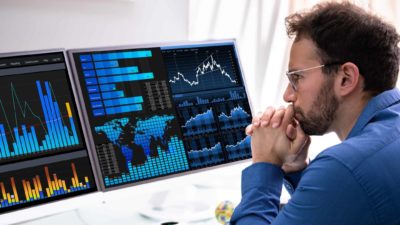The Vanguard Australian Shares Index ETF (ASX: VAS) has suffered in 2022, just like many other investments.
However, compared to some individual ASX shares and sectors, this exchange-traded fund has fared better with a decline of just 15%. The Xero Limited (ASX: XRO) share price is down 48% and the Vanguard US Total Market Shares Index ETF (ASX: VTS) is down by 19%, as two examples.
The performance of its underlying holdings dictates the performance of an ETF.
For the Vanguard Australian Shares Index ETF, it means names such as BHP Group Ltd (ASX: BHP), Commonwealth Bank of Australia (ASX: CBA), and CSL Limited (ASX: CSL) have the biggest influence.
The VAS ETF tracks the S&P/ASX 300 Index (ASX: XKO), meaning the overall ASX 300 group of shares has fallen by 15%.
Is it time to look at the Vanguard Australian Shares Index ETF?
The fall in the VAS price means investors with a regular investment plan for this ETF can dollar-cost average at a lower price.
The VAS ETF also has a few attractive features, such as its low management fee of just 0.10%. That's one of the lowest fees for an investment portfolio focused on ASX shares. Low fees are good because it means more of the investment returns are left in the hands of investors.
Another attractive element is its relatively high dividend yield for an ETF.
Many of the biggest positions in the ETF's portfolio have quite high dividend yields, such as BHP, CBA, Westpac Banking Corp (ASX: WBC), Australia and New Zealand Banking Group Ltd (ASX: ANZ), National Australia Bank Ltd (ASX: NAB), Fortescue Metals Group Limited (ASX: FMG), and Rio Tinto Limited (ASX: RIO).
These high dividend-paying shares significantly influence the dividend yield of the overall Vanguard Australian Shares Index ETF.
According to Vanguard, the dividend yield of the VAS ETF, excluding franking credits, is 4.1%.
Would I invest in this ETF?
I do like to invest in assets at lower prices, so the current price of this ETF seems better.
However, I personally don't invest in the Vanguard Australian Shares Index ETF or index funds in general. I'd only want to buy it for my portfolio if there was a painful sell-off for the banks and the large ASX mining shares, as these two areas make up a significant part of the ETF's holdings.
In my opinion, other ETFs have been sold off more heavily that could make better long-term buys because of the underlying quality, global nature (and therefore bigger addressable market), and higher tech focus. One idea is Betashares Nasdaq 100 ETF (ASX: NDQ), which I recently covered.









